By Christina Fitzpatrick, Processing Archivist
We are pleased to announce the first release of material from the Edward M. Kennedy Senate Files. This collection contains records that are principally connected with Edward M. “Ted” Kennedy’s career in government service, specifically material that was generated by his official duties as Senator from Massachusetts (1962-2009). The first release contains approximately 385 cubic feet and is comprised of 879 archival boxes. The textual files were created by Senator Kennedy’s office in Washington, D.C., from 1962 to 1976, but also contain some material dating back to 1960. They are arranged according to a central filing scheme and mainly document the routine duties of a junior Senator. In addition, over 1,900 audio recordings of the “Face Off” radio program, which feature Senator Kennedy debating political topics with his Republican colleagues, have been digitized and are now available on the Library’s website.
Researchers should be aware that this release contains only a portion of the records generated by Senator Kennedy’s office during the 1960s and 1970s. Additional series will be made available as they are processed.
Ted Kennedy’s first years as a Senator were consumed with learning about the inner workings of Congress and how to best assist constituents in Massachusetts. As he wrote in his memoir:
“I badly wanted to add my voice to the issues in the headlines, but I knew it was too soon. I first needed to establish my legitimacy as a lawmaker worthy of this office, and erase the perception that I was merely the president’s little brother. Building a record of independent achievement and judgment would require time and patience. My core obligation was to Massachusetts, its people, and their interests. I would focus on this obligation while I continued to study the Senate as an institution and learn its folkways.” (True Compass, p. 196)
The vast majority of the files in this release pertain to the constituent services that Senator Kennedy’s office provided to the people of Massachusetts. Though not glamorous, constituent work represented the foundation of an elected official’s duties and usually occupied a significant portion of their time. The sheer volume of constituent files in the collection attests to the time and effort that Senator Kennedy and his staff dedicated to assisting individuals, organizations, businesses, and local governments in Massachusetts during their interactions with the federal government. The routine nature of this work belies the great importance of constituent work in building a relationship between an elected official and the populations they represent.
Contacting Senator Kennedy was often the last resort of citizens who needed information or action from the bureaucracy in Washington. His office was effective in obtaining a definitive response, even if it was not the answer for which a constituent was hoping. The increasing volume of correspondence seems to indicate that people believed Senator Kennedy would “go to bat” for them when it truly mattered. More and more letters poured into his D.C. office, requiring additional staff to investigate the cases and issue responses. By 1969, Senator Kennedy was receiving 1,000 letters per day; by 1972, it had doubled to 2,000 daily. During his early years in office, every response was tracked via an alphabetical file of carbon copies of outgoing letters. These carbons function as a name index to other records in the collection.
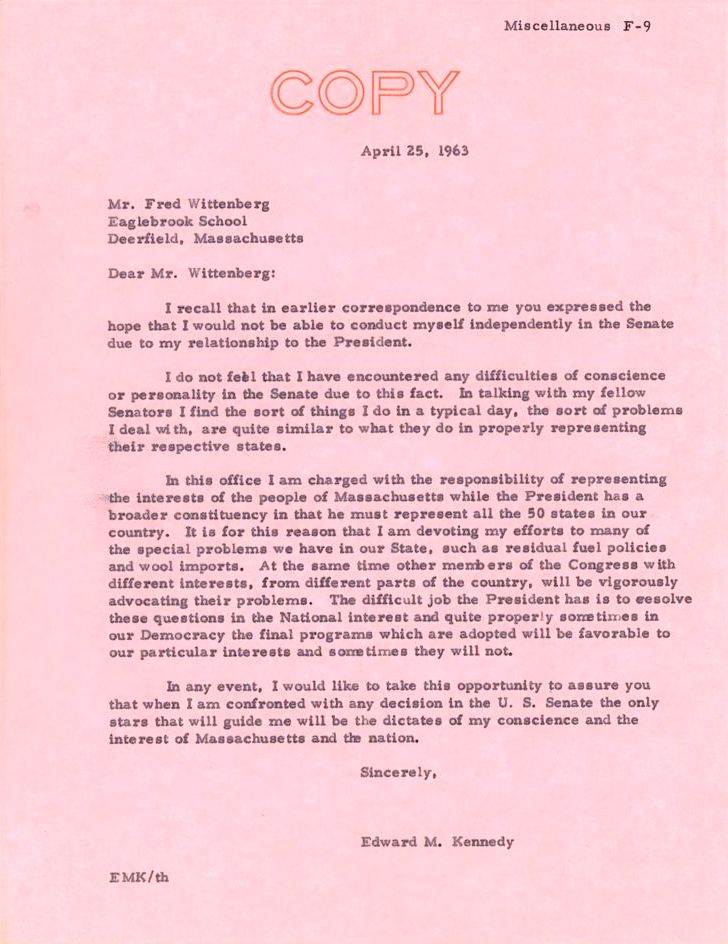
Unsurprisingly, the content of the constituent mail could be quite sensitive as citizens detailed their personal struggles – to claim Social Security or disability benefits, to obtain medical care for a loved one, to transfer to a military station closer to their spouse, to reunite with family members waiting for immigration visas, or to find employment to support their families. Personal data on citizens can also be found in the applications of high schoolers who sought Senator Kennedy’s nomination to one of the U.S. military service academies. Due to the personal and private nature of these types of files, and to protect the privacy of living individuals, most constituent case files are subject to review by archives staff before use. Please contact the Research Room for more information.
While the records are dominated by the experiences of ordinary citizens, every once in a while a famous name pops up – especially as Senator Kennedy became more involved in national issues towards the end of the 1960s.
The materials in this release also provide a wealth of information on the history of Massachusetts, and the opportunities and challenges facing the state in the 1960s and early 1970s. Included are several series of records about specific cities and towns in Massachusetts, in addition to subject files on other local issues. As with the constituent files, the Massachusetts files document the interaction of local communities with the federal government, often in terms of funding, and the role that Senator Kennedy played as advocate and facilitator. The information covers a wide variety of topics, such as education and schools, economic development, post offices, urban renewal and planning, military and defense contracts, waterways and harbors, pollution, highway and airport infrastructure, and national historic landmarks. Other topics of note include mental retardation and the Vietnam War, which both held special interest for Senator Kennedy. The local files also contain significant documentation on the Massachusetts community action agencies that were established under the Economic Opportunity Act of 1964 as part of the “War on Poverty.”
Finally, due to a generous grant from the Fund II Foundation, over 1,900 individual audio recordings of the “Face Off” radio program featuring Senator Kennedy have now been digitized. In these two-minute segments that aired on the Mutual Broadcasting System from May 1986 to September 1993, Kennedy debates hot-button political topics with Republican Senators Robert J. Dole of Kansas and Alan K. Simpson of Wyoming.
The full list of series in this release, with central filing codes and dates of creation, is below. For the full collection finding aid, please see Guide to the Edward M. Kennedy Senate Files. Series marked with an asterisk (*) contain constituent case files that must be screened by an archivist prior to research use, due to the presence of personal data. Researchers may request up to 10 files per month for on-demand review. Please contact the Research Room in advance of your visit to submit a review request. Due to the length of the collection guide, we recommend using a keyword search (Ctrl+F) to locate case files and the names of specific individuals.
Series 1. “Face Off” Audio Recordings, 1986-1993.
This series consists of audio recordings of the two-minute “Face Off” radio debates that aired each weekday on the Mutual Broadcasting System from May 1986 to September 1993. In this program, Senator Edward M. Kennedy of Massachusetts and Senate Republican Leader Robert J. Dole of Kansas aired their opinions on political and social topics. When Senator Dole left the program to seek the Republican presidential nomination in November 1987, Senator Alan K. Simpson of Wyoming, the Republican Whip, stepped in to debate with Senator Kennedy and continued to do so until the program was discontinued. There are 1,916 individual debates in this series.
Series 2. Alphabetical Outgoing Carbons, 1962-1974.
This series contains carbon copies of outgoing letters sent by the staff of Senator Edward M. Kennedy’s office in Washington, D.C. The letters are arranged by year, then in strict alphabetical order by last name of addressee. This series functions as a name index to other records in this collection. The codes typed at the top of the letters will point researchers to the location of the main files. The series is believed to be most complete from 1962 to 1967. The content of these letters reflects the full range of Senator Kennedy’s official duties and his office’s daily interactions with Massachusetts constituents and government officials. However, a high percentage are routine form letters written from templates.
Series 3. General Case Files (F-1), 1961-1974. (*)
This series contains constituent case files on general topics (central filing code F-1). Topics covered in the general case files include Social Security, disability, and retirement benefits; employment inquiries and personnel problems; discrimination claims; consumer complaints; post office issues (after 1969); and all other miscellaneous requests.
Series 4. Postmaster Project Files (F-2), 1960-1969.
This series contains project files pertaining to the appointment of postmasters, acting postmasters, and rural letter carriers in Massachusetts (central filing code F-2). Postmaster positions were filled by a process that combined federal Civil Service Commission examinations with the local political patronage system. U.S. Senators and Representatives were asked to recommend one candidate from the list of three eligible individuals. The local town or city Democratic committee was also given an opportunity to endorse a candidate in conjunction with the Massachusetts Democratic State Committee. The files in this series document Senator Kennedy’s role in the process.
Series 5. Post Office Case Files (F-3), 1960-1969. (*)
This series contains constituent case files pertaining to Post Office employment issues (central filing code F-3). Topics include requests for Post Office Department jobs, promotions, transfers or reassignments, employee complaints, and other personnel matters. Most cases relate to positions in the Boston Post Office or the Boston Regional Post Office.
Series 6. Military Case Files (F-4), 1962-1975. (*)
This series contains constituent case files pertaining to military issues (central filing code F-4). Topics cover a wide range of military matters, including personnel requests for enlistments, assignments, transfers, leave, and discharges; military benefits, both during and after service; military housing and conditions on base; disciplinary measures; investigations into complaints and allegations; medical issues; draft classification and deferments; and general administrative matters such as overseas mail service and the hiring of military bands.
Series 7. Veteran Case Files (F-5), 1962-1969. (*)
This series contains constituent case files pertaining to veteran issues (central filing code F-5). The vast majority of cases relate to claims for benefits or services, such as pensions, health care, disability compensation, and education. Other topics include housing for veterans, the VA hospital system, and service record adjustments.
Series 8. Post Office Project Files (F-6), 1961-1969.
This series contains project files pertaining to local post offices in Massachusetts (central filing code F-6). Topics include construction and dedication of new post office buildings; personnel issues of postal employees (appointments, promotions, transfers, disputes); complaints or suggestions about mail service; seasonal post offices; and consolidation and closing of post offices.
Series 9. City and Town Project Files (F-6), 1960-1971.
This series contains project files pertaining to cities, towns, and counties in Massachusetts (central filing code F-6). The series documents the interaction of local communities with the federal government. Topics include education and schools, urban renewal, housing, defense contracts, engineering and maintenance of waterways, pollution, public works infrastructure (sewers, roads), economic development, and national historic landmarks. The series also includes significant documentation on the Massachusetts community action agencies that were established under the Economic Opportunity Act of 1964 to administer such programs as Head Start and Job Corps.
Series 10. Local Issue Project Files (F-6B), 1961-1971.
This series contains files pertaining to local and regional issues in Massachusetts (central filing code F-6B). The records here mainly cover topics that had statewide or regional impact. Issues include economic development in Massachusetts, such as the campaign for a NASA research facility; military bases and defense contractors; urban renewal and planning; waterways and harbors; infrastructure projects, highways, and airports; and education funding and scholarships. There is significant documentation about Massachusetts organizations in the federal military-industrial complex, such as the Boston Naval Shipyard, the Fore River-Quincy Shipyard, the Springfield Armory, and the Watertown Arsenal. Other topics of note include mental retardation and the Vietnam War, which both held special interest for Senator Kennedy. The series also includes material sent to Senator Kennedy after the assassination of President John F. Kennedy, such as memorials, condolence mail, and tributes.
Series 11. Military Academy Application Files (F-8), 1962-1976. (*)
This series contains files pertaining to appointments to the United States military academies, also known as federal service academies, which provide officer training for the U.S. Armed Forces (central filing code F-8). All applicants are required to be nominated by one of their federal elected officials. Senator Kennedy granted nominations to a select number of Massachusetts residents each year. Although the completeness of each file varies, full applications contain an 8-page questionnaire with photograph, high school transcripts, medical records, personal references, Civil Service examination results, and related correspondence.
Series 12. Immigration and Private Bill Case Files (F-10, F-11), 1961-1970. (*)
This series contains constituent case files pertaining to immigration and naturalization matters, as well as private bills for claims against the federal government (central filing codes F-10 and F-11). The F-10 files cover a wide range of immigration inquiries and issues, such as visa applications of individuals and family members for permanent residency; visitor, work, and student visas; naturalization procedures; quotas and preference lists for various countries; alien employment certifications; and residency requirements related to medical training in the United States. The F-11 private bill files are a very small portion of this series, and mostly pertain to monetary claims against the government.
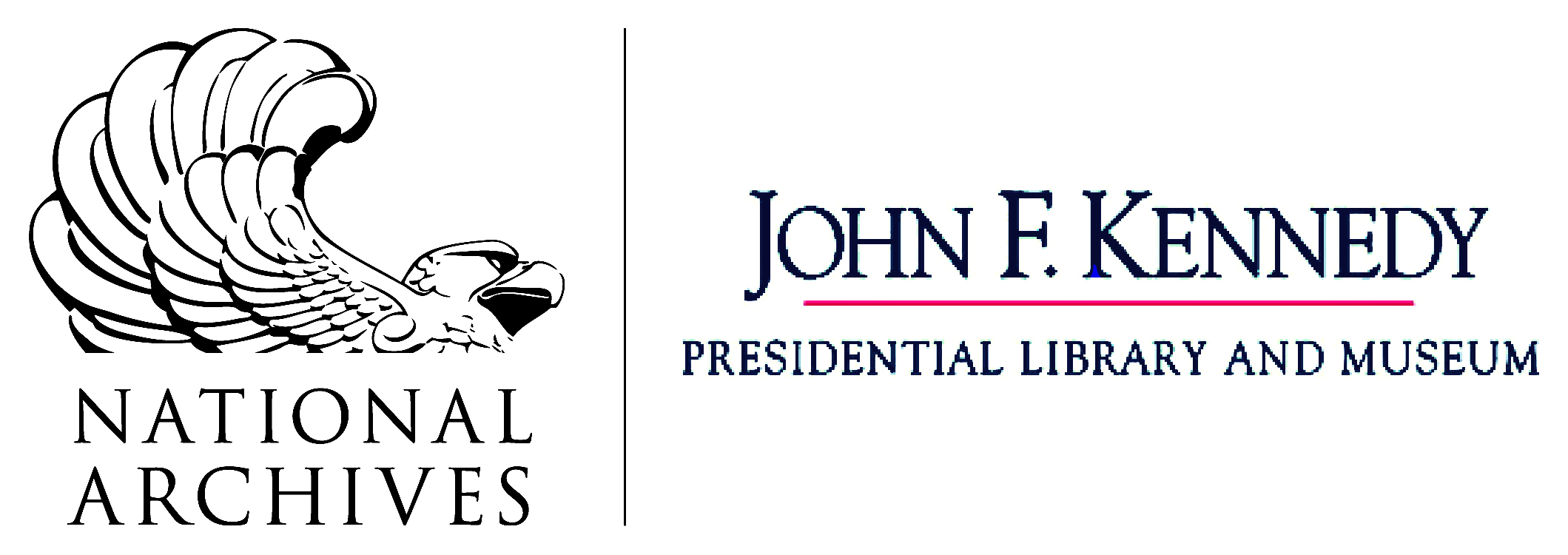
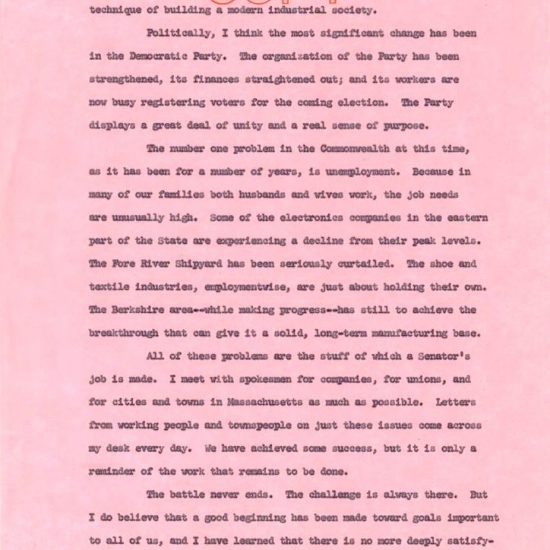
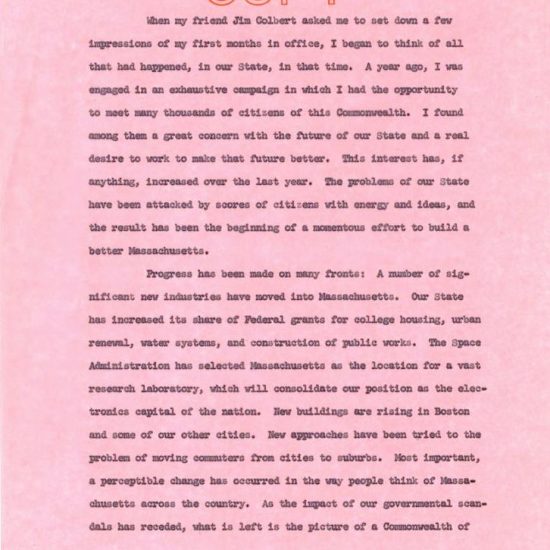
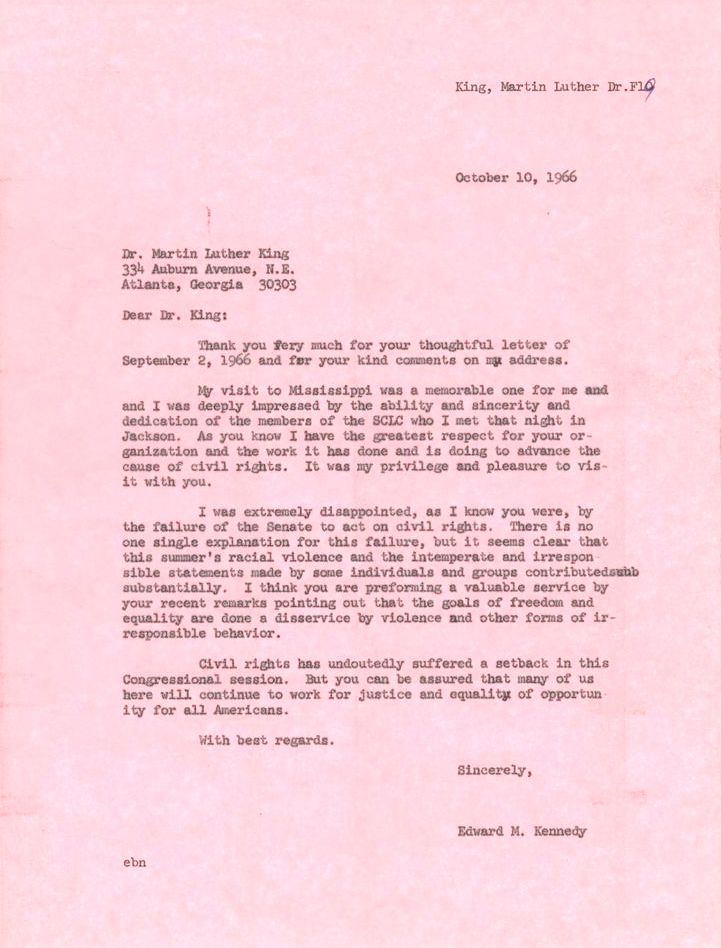
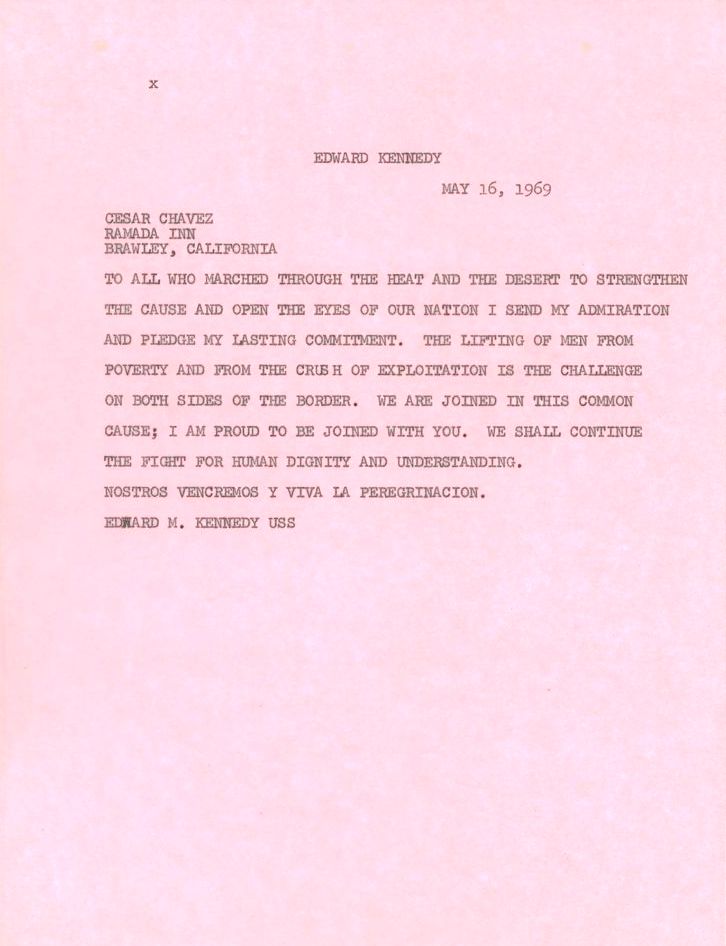
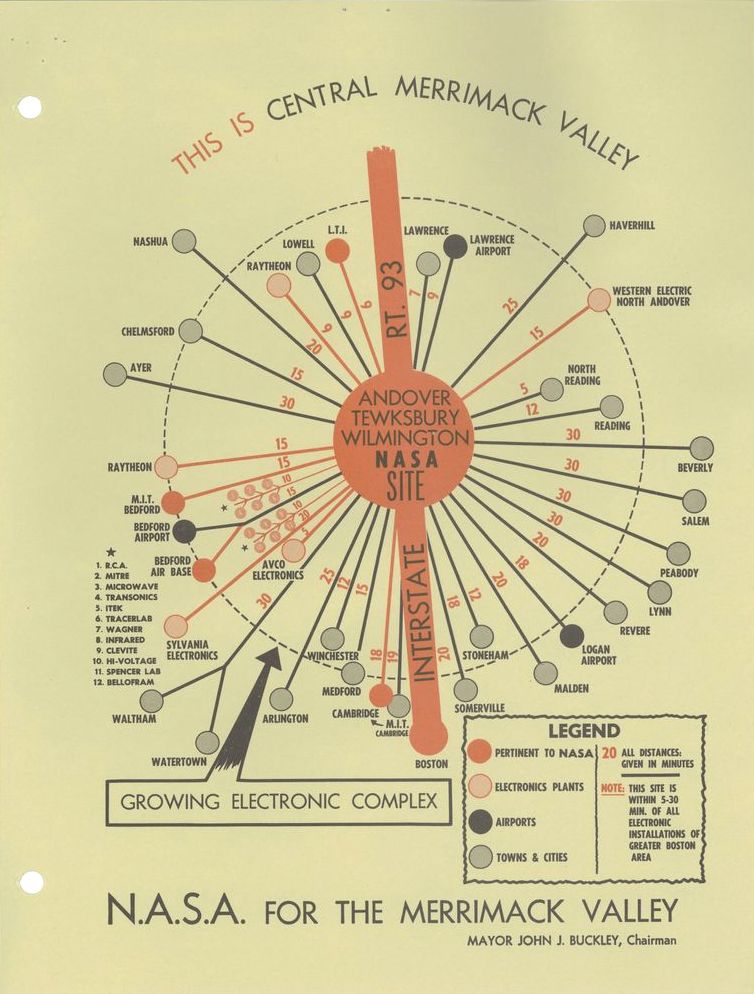
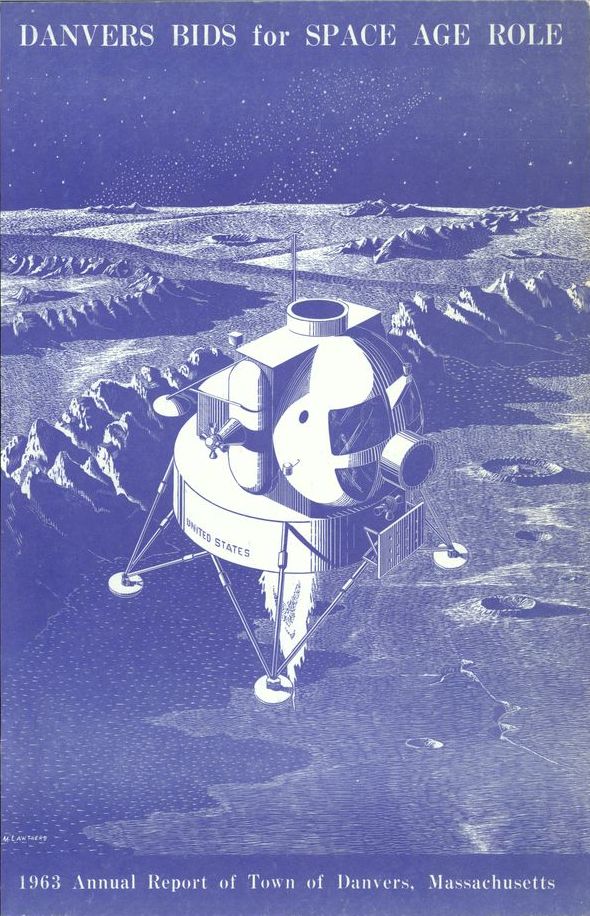
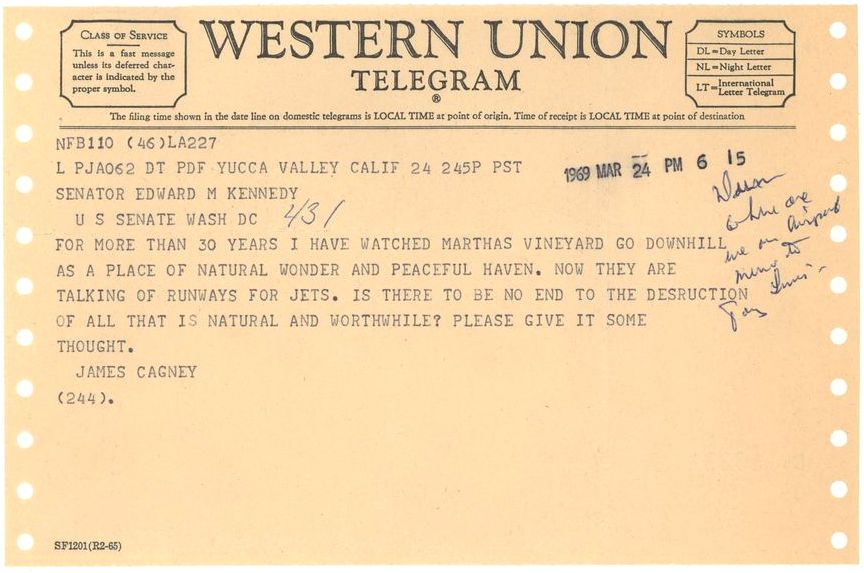
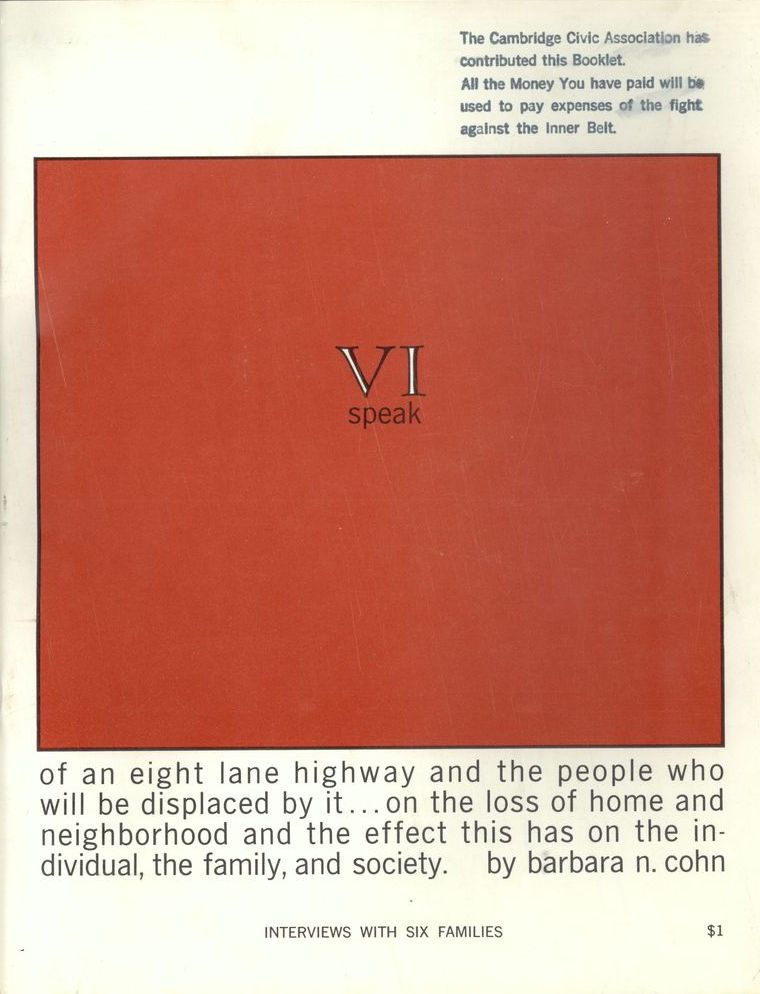


[…] may remember a letter from Senator Kennedy to Dr. Martin Luther King, Jr., that was featured in our previous blog post on this collection. Now the other side of the exchange has come to light. Dr. King’s original letter to Senator […]